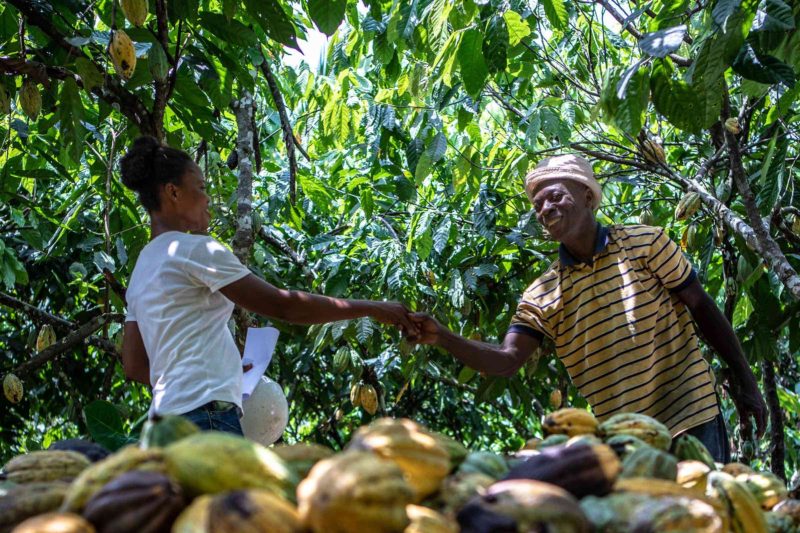Fairtrade International strengthens its key human rights and hired labour standards

Smallholder farmers in West Africa should be part of the climate solutions, says Fairtrade (pic, Ben Rotthoff, Koa)
Fairtrade International has confirmed a key enhancement of its hired labour standards within its supply chains for markets including the cocoa sector, as it seeks to prepare for major legislative reforms being put forward within the EU, reports Neill Barston.
The move from the social justice movement comes as the sector continues to raise the bar for supporting farmers on a global level through much-needed improved traceability, transparency and wider community support measures for agricultural workers.
This includes key legislation the European Corporate Sustainability Reporting Directive (CSRD) and the EU Deforestation Regulation (EUDR), in addition to the EU Corporate Sustainability Due Diligence Directive and EU Forced Labour Ban, which are collectively being brought forward to raise operating standards. These stem from UN-based guiding principles that were first introduced back in 2011, encouraging industry to play its part on a global level in cementing improved protocols for trading practices.
For its part, Fairtrade’s latest initiative, it has updated its frameworks in response to Human rights and environmental due diligence (HREDD) legislation is presently making its way through the EU parliament, designed to offer greater protections to those working within core industry supply chains, as well as ensuring companies are held legally responsible.
As the organisation, which has previously played a key role in our World Confectionery Conference event which returns on 12 September in Brussels, explained, it intends to introduce its uprated standards in a phased approach, requiring businesses that currently hold its labour certification to establish and implement a full series of improvements, starting with a commitment to respecting human rights and environmental sustainability.
Notably, it confirmed that its trader standards apply to all organisations that buy and sell Fairtrade products, and/or handle the Fairtrade price and premium. The Hired Labour Standard applies to organisations that employ hired labour to supply Fairtrade-certified products. Significantly, the organisation explained that it has sought to involve its industry supply chain partners within the decision making process surrounding creating its enhanced standards.
Moreover, as part of these enhanced frameworks, companies must also identify the most serious human rights and environmental risks and harms related to their business, address and remediate them, and track the effectiveness of these measures. These updated Standards support certified organisations moving towards full compliance with human rights laws.
“Our new Standards highlight the importance of dialogue, collaboration and cost sharing between suppliers and buyers. We expect Fairtrade certified companies to adopt dialogue and cost sharing as the foundations of their due diligence, as that’s what it takes for due diligence to be effective,” said Tytti Nahi, the Director of Fairtrade’s Centre of Excellence on HREDD.
As the organisation added, the requirements will be phased in starting in January 2025 and certified companies must meet all of them by January 2027. The applicability is incremental because HREDD is a process where the first steps lay the groundwork for the next ones. Companies that become Fairtrade Trader or Hired Labour certified after July 2025 need to comply with some of the new requirements immediately and all of them within three years of being certified.



